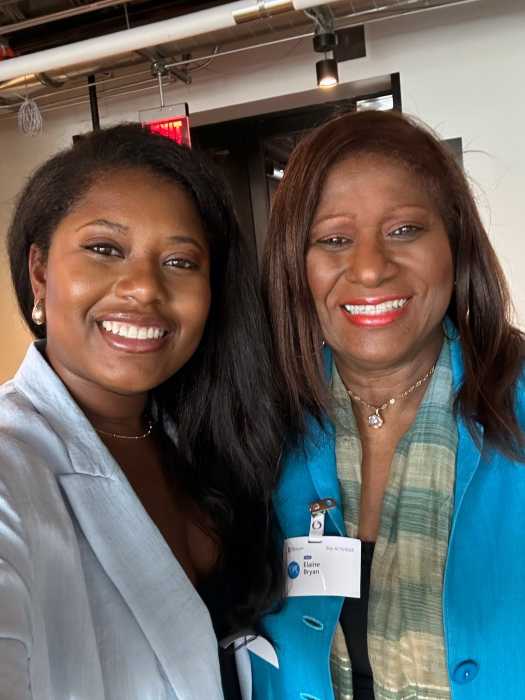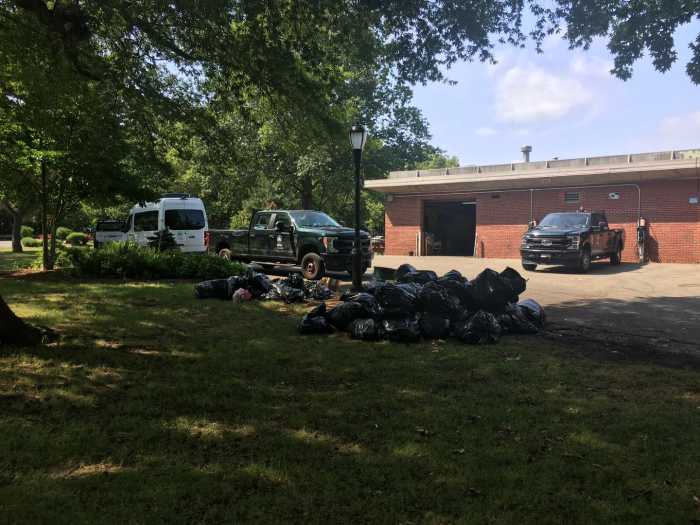With the University of Guyana continuously expanding to include a wider variety of degree programs, students have more options to pursue their dreams.
And while individualized degrees give students many options, the institution has enhanced programs to prepare graduates with better business options.
For example, the Center for Communication Studies has updated its curriculum to give students the opportunity to create a more realistic marketing communication plan that would matured into a business after graduation.
Lecturer Rhonda Hamilton recently invited Caribbean Life newspaper to the Turkeyen Campus, to witness presentations by final-year students who used theories to bring to life a model geared towards successful business opportunities.
Hamilton, a five-year faculty member, said the Integrated Marketing Communication syllabus helped students to move away from just public relations, and instead give them the opportunity to experience a broader step-by-step insight into a marketing plan.
“The students must bring something to life in their presentation using concepts learned so when they graduate they could take their ideas and mature them into businesses,” said Hamilton, adding that she hopes these business ideas would be implemented in their personal lives, and would impact not only Guyana, but regionally and internationally as well.
With close to 49 students from the Turkeyen Campus expected to graduate with a degree in communication studies in November 2015, Hamilton, who said she was impressed with the presentations, lauded the curriculum change that has motivated an influx of students who graduate in both the two-year diploma, and four-year degree programs.
She pointed out that before the introduction of the Integrated Marketing Communication course however, only roughly 10 students graduated at the degree level, but noted that there has been a surge of 50 students who graduated in the class of 2014.
“They are staying the course because of the new opportunities that are available to them,” added Hamilton, a public speaker who engages social groups, corporate and religious organizations in her programs.
During four semesters of instruction to obtain the diploma or eight semesters to complete the degree program, students must accomplish 34 courses and earn 92 or 126 credits respectively, to graduate from the course of study.
In addition to the IMC class which includes Research, TV and Radio Production, Online Journalism, Media Management and Print Media – specialized journalism is taught with a focus on cultural and artistic review writing with relation to Guyana.
“We ask students to focus on Guyana because we want to develop strong, critique and review skills within the realm of arts and culture in our country,” added Hamilton who also teaches Contemporary Communication at the Caribbean Nazarene College, as part of their District Education course.
At the completion of the course, students are also encouraged to create an online blog.
“We are constantly reviewing the curriculum,” said Hamilton, who praised the senior year students for their outstanding presentations.
“I tell students, regardless of the theories that you have received, and all of the written work you have completed, I want to see you put what you have learned into action, even if its just two concepts. I want to see these business ideas grow from infancy to maturity,” added Hamilton.
The lecturer said that the students who used tools such as video clips, and shared samples of their business ideas with each other, made compelling arguments of how well their business venture would impact the marketplace.
Hamilton, who argues that every communication must impact change said, “change that facilitates the development of the mind, body and soul acts as a conduit for the development of our society.”
Students are taught the Foundations of Journalism, Logic, Evidence and Research, Writing, Media Ethics and Law, Sociological Theory, Computer Literacy, Broadcast Reporting, Writing for TV and Radio and Survey of Guyanese History, just to name a few.

























